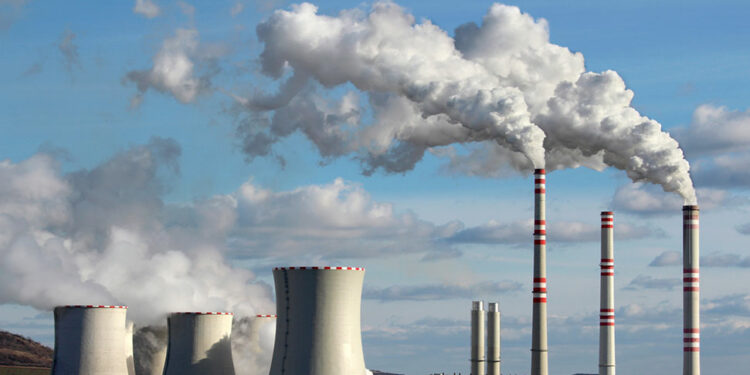EU’s carbon border tax: a new report shows Africa stands to lose $25 billion every year
A new European law that imposes the first ever carbon border tax in the world comes into force in October 2023. It will be applied gradually over the next three years before it is fully implemented.
A carbon tax is a type of levy imposed on greenhouse gas emissions. It is meant to encourage companies to adopt clean methods of production.
But firms could get around the tax by moving production units outside the EU to countries with less strict terms, such as those in Africa, and then exporting products back to the EU. That’s why the EU has come up with the Carbon Border Adjustment Mechanism.
At the moment it costs firms operating within the EU around €80 (US$86) to emit one tonne of carbon dioxide. Under the new system, importers will be charged the same for carbon emissions as domestic producers are.
The new policy will initially apply to iron, steel, cement, aluminium, fertilisers, hydrogen and electricity generation.
But the mechanism has proved to be highly controversial.
In the global north it’s been applauded as a positive climate action. The policy’s architects see it as an opportunity for the EU to play a “leading role at the global level” on climate action. Climate activists in the global north are excited about it too, although a UN Conference on Trade and Development study concluded that emission reduction from the carbon border adjustment mechanism “represents only a small percentage of global CO₂ emissions”.
In the global south it’s been heavily criticised. Critics see it as an industry protection measure that will have negative repercussions on regions such as Africa.
The question being raised is whether such climate action is just.
In our newly released report, we point out that the affected sectors – cement, iron & steel, aluminium, fertilisers and electricity – are key drivers of African economies. We conclude that the new policy will wipe out 0.91% of the continent’s combined GDP (equivalent to a fall of US$25 billion at 2021 levels of GDP).
To put this in context, the annual losses from the border tax represent, in value, three times the development cooperation budget that the EU committed to Africa in 2021. In 2021 the EU allocated €6.3 billion (US$6.8 billion) to the continent.
We find that Africa would be the most affected region, as a share of GDP. This is because the EU represents a key market to many African economies exporting the products covered by the new law.
We conclude that the policy is a significant challenge for Africa. It will disproportionately affect African economies – big and small – even though the continent has a limited carbon footprint. But also we note that measures like this are here to stay: what’s needed from the EU side is a differentiated approach that can give breathing space for countries to adjust, combined with appropriate finance.
Difficult terrain
Our models show that the impact of the new measures could be mitigated if African countries diverted their exports to other markets, notably China and India.
But market diversification has been a challenge for most African economies.
Take the case of Mozambique. Our modelling found that the country is particularly exposed to the new law because of its aluminium exports to the EU while the value of its exports to China is almost negligible.
And there could be more trouble down the road. Reacting to the EU law, other countries which are possible markets for Africa have announced their intention to introduce similar mechanisms in a bid to decarbonise trade.
In March 2023, the UK opened consultations for its mechanism. In May 2023, India announced that it would retaliate by introducing a tariff system. The US introduced its own retaliatory measure through the Inflation Reduction Act.
Attempting to calm criticism, Brussels and some European capitals floated the idea of “recycling” revenue from the new policy to help African countries adjust. However, the EU also made a binding commitment to use the revenue for its own Innovation Fund. This will fund the development of new technologies in the bloc.
In any case, the anticipated revenue of €1 billion to be generated from the new policy is unlikely to compensate for the higher revenue loss of African countries.
Africa could arguably weather the impact of the law had it been in the process of scaling up renewable energy capacity. Yet, to date, the continent continues to attract a mere 2% of global investments in renewable energy. The climate finance that was promised is not forthcoming. Nor has the EU itself contributed its fair share to international climate finance.
A road map for responses
Countries will need to urgently reach new export agreements and unlock new markets for their exports to reduce the shock from the EU’s new carbon border law. This will be a tall order for which most countries aren’t prepared.
Access to other markets will also depend on the policy direction countries take as they respond to what is seen as a trade war and increased protectionism by the EU.
Considering the continent’s limited carbon footprint and limited challenge to the EU’s industrial base, what’s needed is a differentiated approach that allows countries to adjust, combined with appropriate finance.
Costing the pathway to transition in combination with required policy adjustments should form the basis of an African response. Measures such as these are here to stay. African countries should therefore consider a pathway for green industrialisation and garner support around that agenda through investments.
Faten Aggad, a senior climate diplomacy advisor at the African Climate Foundation, contributed to this article.








